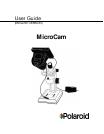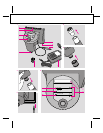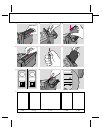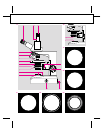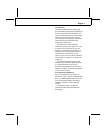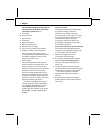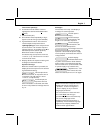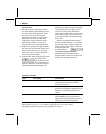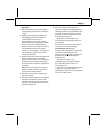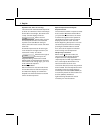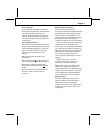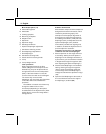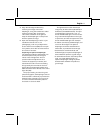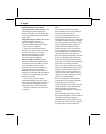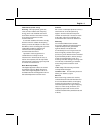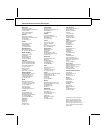
Xenon lighting
If using a Xenon (daylight) microscope
illuminator with color film, set the camera
for Type 331 black & white film, to
remove the built-in filter. Then press the
black arrow ▼ to decrease the exposure
by × .66 to compensate for the difference
in film speed.
Dark-field illumination
The camera’s automatic exposure system
may produce incorrectly exposed pictures
when dark-field illumination is used. The
built-in exposure meter can be used to
determine the correct exposure as
follows:
• Set the microscope for bright-field
illumination.
• Set the camera for
Automatic mode, and
take a meter reading as described above.
• Re-set the microscope for dark-field
illumination, and the camera for
manual
mode.
• Use the exposure time indicated by the
camera’s meter to make a manual
exposure.
Microscope information
Because of the great variety of
microscopes that are compatible with the
MicroCam, this booklet cannot provide
specific details for all equipment. You
should refer to the instructional material
provided with your microscope, or
contact the supplier for more information.
One of the most important microscope
adjustments for photography is the
illumination. The microscope illumination
must meet specific criteria: The beam of
light must be correctly concentrated and
adjusted to provide even illumination
over the entire picture area, as the
camera cannot compensate for uneven
lighting.
Please refer to the “universal”
microscope illustration (17) for the
location of microscope controls.
Note:
Some older microscopes utilize
optics in the eyepiece to correct for
chromatic aberration. An adapter will be
required to produce optimum resolution
with the MicroCam. (Contact Polaroid
Technical Assistance for information.)
Magnification
The final magnification of the print is
approximately ten times the magnifi-
cation power of the microscope’s
objective lens. If the exact magnification
must be verified, include a scale in the
photograph.
English 9



